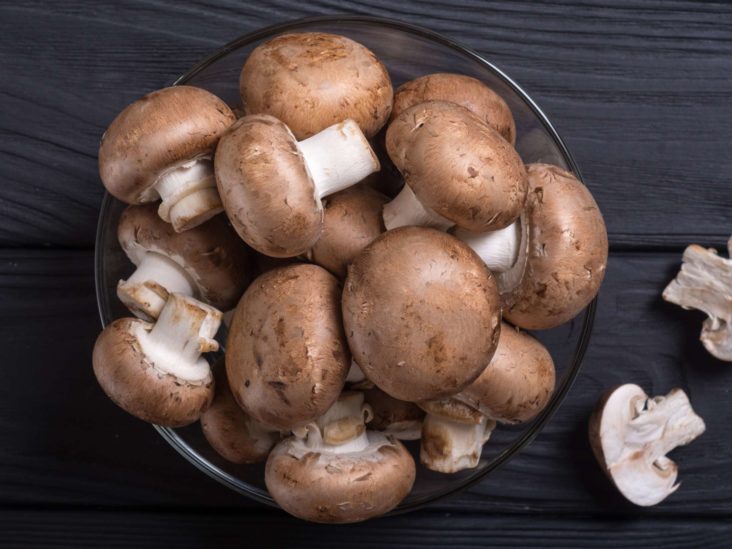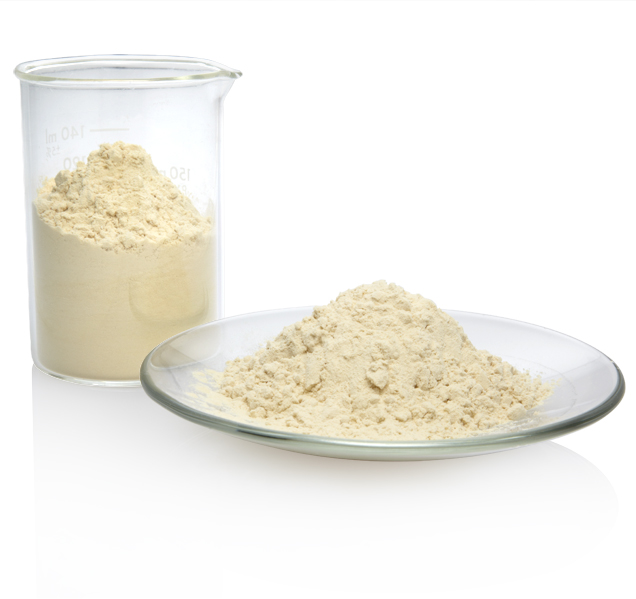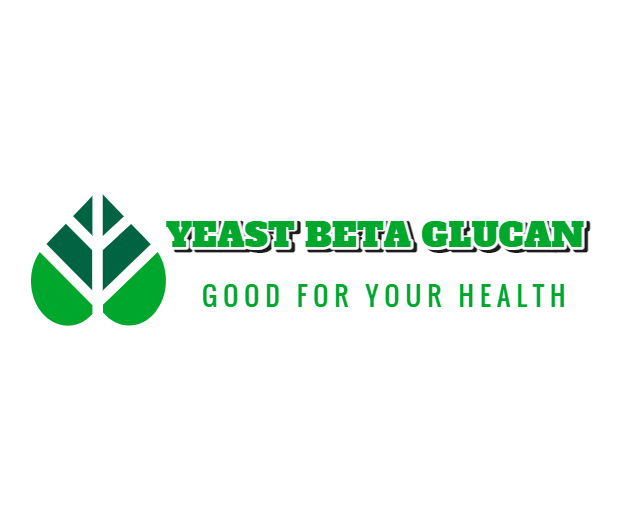What are beta-glucans?
Beta-glucans are a type of polysaccharide for which effects on cholesterol, blood glucose, and the immune system have been proposed.
Where are beta-glucans found?
They are found in cereals such as oats and barley, in algae, fungi, and yeasts. Their properties are related to their chemical structure, origin, molecular weight, and solubility, beta-glucans from fungi and yeasts (from beer or bread: Saccharomyces cerevisiae) that act on the immune system.
Structure of beta-glucans

Beta-glucans are polysaccharide chains consisting of several glucose units linked together through beta 1-3 and beta 1-4 bonds, with or without branches. The structure of beta-glucans depends on where they come from and determines their health benefits.
Oat and barley beta-glucans are composed of unbranched linear chains with beta 1-3 and beta 1-4 bonds, whereas yeast and fungal beta-glucans are composed of linear chains with beta 1-3 bonds and side branches with beta 1-6 adhesives.
Therefore, when reference is made to yeast and fungal beta-glucans, they are referred to as beta-1,3/1,6-glucans. The difference between the two is in the length of the branches, which are longer in yeast.
What are the health properties of beta-glucans?
Beta-glucans are neither digested nor absorbed in our digestive system because humans do not have enzymes to degrade them. So they arrive intact in the small intestine where they act, some as dietary fiber and others as biologically active substances on the cells of the immune system.
Beta-glucans from cereals (oat, barley): cholesterol and glucose
In cereal beta-glucans, they act as dietary fiber reducing plasma concentrations of cholesterol and glucose and improving parameters such as dyslipidemia and insulin resistance. Daily consumption of at least 3 g of beta-glucans from oats or barley can reduce LDL-cholesterol levels and consequently reduce the risk of cardiovascular disease.

Yeast and mushroom beta-glucans for the immune system
Yeast and fungal beta-glucans exhibit immunomodulatory properties. Their mode of action is quite complex because they interact with different cell types and act on innate and adaptive immune responses. (De Marco Castro, 2020)
It has been proposed that they interact directly with Peyer’s patches, located in the small intestine membrane. Or they can be ingested by the macrophages with subsequent activation of other cells involved in the immune system, improving antimicrobial activity against viruses, bacteria, yeasts, and fungi.

In addition, beta-1,3/1,6-glucans induce leukocyte activation, increase the number of Th1 lymphocytes, balance the Th1/Th2 ratio, modulate antibody production, and produce anti-inflammatory mediators. (Bashir, 2017)
Clinical studies with beta-glucans
Beta-glucans and immune system to prevent flu and cold
Several published studies on the role of fungal and yeast beta-glucans in the treatment and prevention of recurrent respiratory infections such as the common cold or flu in children, adults, and athletes.
Clinical studies conducted with beta-glucans obtained from the yeast Saccharomyces cerevisiae have been shown to reduce recurrent respiratory tract infections and the severity of their symptoms and reduce allergy and allergic rhinitis episodes. (Jesenak, 2017)
Respiratory infections are the most common type of infection at any age, with some people presenting up to 6 episodes per year. Taking a supplement with different doses of yeast beta-glucans (Yestimun®) for 24 or 26 weeks has shown the following (Auinger, 2013; Graubaum, 2012):
- improve the immune system’s response to respiratory infections
- reduce the number of episodes of the common cold
- reduce the intensity of symptoms such as headache, sore throat and difficulty in swallowing, hoarseness, cough, runny nose, and poor sleep quality due to the cold itself
Supplementation with 250 mg/day of yeast beta-glucans for 4 weeks has also been shown to significantly reduce overall pollen allergy symptoms and intensity by half (Pizarro 2014).
Beta-glucans and intense physical exercise
Regular physical exercise has positive effects on the immune system. However, prolonged and high-intensity physical activity has negative consequences on immunity.
Therefore, the immunomodulatory activity of beta-glucans has also been studied in athletes.
A double-blind, controlled trial conducted with 75 marathon runners showed that consumption of 250 to 500 mg/day of yeast beta-glucans for 4 weeks after participating in a marathon significantly reduced the frequency of respiratory tract infections. The treated group also improved feelings of fatigue, tension, and stamina, suggesting that beta-glucans can improve immunity after intense exercise. (Talbott, 2009)

Beta-glucans and vitamin C
Beta-glucans act synergistically with vitamin C to improve the immune response to infections. Joint supplementation of both nutrients is more effective than vitamin C alone in reducing respiratory infections in children and athletes (San Mauro-Martín, 2015).
What dose of beta-glucans is advisable to take?
The proven daily dose for yeast beta-glucans in different clinical studies with children and adults ranges from 100 to 900 mg for immune system enhancement.
It’s recommended a daily dose of 3 and 4 g respectively of beta-glucans from oats or barley to maintain normal cholesterol and blood glucose levels.
Safety of yeast beta-glucans
According to the European Food Safety Authority (EFSA), the consumption of Saccharomyces cerevisiae yeast is common in the population through bakery products and craft beer without any risk of allergy. Therefore, it concludes that the consumption of yeast beta-glucans is safe for humans.
Regarding the use of yeast beta-glucans in food supplements, EFSA authorizes a maximum of 1,275 mg/day for adults and children over 12 years of age and 675 mg/day for children under 12 years of age.
As yeast or mushroom beta-glucans modulate the immune system, it is not recommended for people taking immunosuppressants.
Bibliography
Auinger A, Riede L, Bothe G, Busch R, Gruenwald J. Yeast (1,3)-(1,6)-beta-glucan helps maintain the body’s defense against pathogens: a double-blind, randomized, placebo-controlled, multicentric study in healthy subjects. Eur J Nutr. 2013 Dec;52(8):1913-8.
Bashir KMI, Choi JS. Clinical and Physiological Perspectives of β-Glucans: The Past, Present, and Future. Int J Mol Sci. 2017 Sep 5;18(9):1906.
De Marco Castro E, Calder PC, Roche HM. β-1,3/1,6-Glucans and Immunity: State of the Art and Future Directions. Mol Nutr Food Res. 2020 Mar 29:e1901071.
Graubaum H, Busch R, Stier H and Gruenwald J, “A Double-Blind, Randomized, Placebo-Controlled Nutritional Study Using an Insoluble Yeast Beta-Glucan to Improve the Immune Defense System,” Food and Nutrition Sciences, Vol. 3 No. 6, 2012, pp. 738-746. DOI: 10.4236/fns.2012.36100.
Jesenak M, Urbancikova I, Banovcin P. Respiratory Tract Infections and the Role of Biologically Active Polysaccharides in Their Management and Prevention. Nutrients. 2017 Jul 20;9(7):779.
Pizarro C, Sebastián; Ronco M, Ana María and Gotteland R, Martín. ß-glucans: what types exist and what are their health benefits?Rev. chil. nutr. [online]. 2014, vol.41, n.4, pp.439-446.
San Mauro-Martín, Garicano-Vilar E. Role of vitamin C and beta-glucans on the immune system: review. Rev Esp Nutr Hum Diet. 2015;19(4):238-245.
Talbott S, Talbott J. Effect of BETA 1, 3/1, 6 GLUCAN on Upper Respiratory Tract Infection Symptoms and Mood State in Marathon Athletes. J Sports Sci Med. 2009 Dec 1;8(4):509-15.

 English
English Nederlands
Nederlands Français
Français Deutsch
Deutsch Italiano
Italiano 日本語
日本語 Português
Português Русский
Русский Español
Español Türkçe
Türkçe Tiếng Việt
Tiếng Việt



71 Responses
Thank you for the wise critique. Me & my neighbour have been making ready to perform a little research about that. We acquired a great e book on that matter from our native library and most books the place not as influensive as your information. I am very glad to see such info which I used to be searching for a protracted time.This made very glad! Anyway, in my language, there arent much good source like this.
Lovely just what I was looking for.Thanks to the author for taking his time on this one.
I really like reading through a post that can make men and women think. Also, thank you for allowing me to comment!
This was beautiful Admin. Thank you for your reflections.
Nice post. I learn something totally new and challenging on websites
Very well presented. Every quote was awesome and thanks for sharing the content. Keep sharing and keep motivating others.
This is my first time pay a quick visit at here and i am really happy to read everthing at one place
I just like the helpful information you provide in your articles
There is definately a lot to find out about this subject. I like all the points you made
Cool that really helps, thank you.
I appreciate you sharing this blog post. Thanks Again. Cool.
Hi there to all, for the reason that I am genuinely keen of reading this website’s post to be updated on a regular basis. It carries pleasant stuff.
Nice post. I learn something totally new and challenging on websites
Hi there to all, for the reason that I am genuinely keen of reading this website’s post to be updated on a regular basis. It carries pleasant stuff.
I think this post makes sense and really helps me, so far I’m still confused, after reading the posts on this website I understand.
Cool that really helps, thank you.
I just like the helpful information you provide in your articles
naturally like your web site however you need to take a look at the spelling on several of your posts. A number of them are rife with spelling problems and I find it very bothersome to tell the truth on the other hand I will surely come again again.
I am truly thankful to the owner of this web site who has shared this fantastic piece of writing at at this place.
I see what you mean, Raju. It’s important to consider the complexities of topic in order to find workable solutions.
I think you’ve highlighted some important issues, Amjad. It’s important to consider the potential consequences of topic and how we can address them.
I’m often to blogging and i really appreciate your content. The article has actually peaks my interest. I’m going to bookmark your web site and maintain checking for brand spanking new information.
I appreciate you sharing this blog post. Thanks Again. Cool.
Very well presented. Every quote was awesome and thanks for sharing the content. Keep sharing and keep motivating others.
I just like the helpful information you provide in your articles
I am truly thankful to the owner of this web site who has shared this fantastic piece of writing at at this place.
This is my first time pay a quick visit at here and i am really happy to read everthing at one place
I see what you mean, Amjad. It’s important to consider the complexities of topic in order to find workable solutions.
naturally like your web site however you need to take a look at the spelling on several of your posts. A number of them are rife with spelling problems and I find it very bothersome to tell the truth on the other hand I will surely come again again.
I do not even understand how I ended up here, but I assumed this publish used to be great
very informative articles or reviews at this time.
But why not play them using your own computer and, thus, having fun with your friends by singing along popular songs? Now you can with the help of getintopc.
naturally like your web site however you need to take a look at the spelling on several of your posts. A number of them are rife with spelling problems and I find it very bothersome to tell the truth on the other hand I will surely come again again.
I’m often to blogging and i really appreciate your content. The article has actually peaks my interest. I’m going to bookmark your web site and maintain checking for brand spanking new information.
Wonderful beat ! I would like to apprentice even as
you amend your site, how could i subscribe for a weblog web site?
The account aided me a acceptable deal. I were tiny bit familiar of this your broadcast offered vivid transparent concept
Pretty! This has been a really wonderful post. Many thanks for providing these details.
Hi there to all, for the reason that I am genuinely keen of reading this website’s post to be updated on a regular basis. It carries pleasant stuff.
Nice post. I learn something totally new and challenging on websites
Great information shared.. really enjoyed reading this post thank you author for sharing this post .. appreciated
You’re so awesome! I don’t believe I have read a single thing like that before. So great to find someone with some original thoughts on this topic. Really.. thank you for starting this up. This website is something that is needed on the internet, someone with a little originality!
I appreciate you sharing this blog post. Thanks Again. Cool.
Good post! We will be linking to this particularly great post on our site. Keep up the great writing
This is my first time pay a quick visit at here and i am really happy to read everthing at one place
Your article prompted me to consider things I had never thought of before, making it an exciting learning experience.
I do not even understand how I ended up here, but I assumed this publish used to be great
For the reason that the admin of this site is working, no uncertainty very quickly it will be renowned, due to its quality contents.
I appreciate the way you break down complex ideas into simple, easy-to-understand language. It makes the information much more accessible.
This was beautiful Admin. Thank you for your reflections.
Great information shared.. really enjoyed reading this post thank you author for sharing this post .. appreciated
Good post! We will be linking to this particularly great post on our site. Keep up the great writing
This article presents many different perspectives and broadens my understanding of the topic.
I just like the helpful information you provide in your articles
Cool that really helps, thank you.
Great wordpress blog here.. It’s hard to find quality writing like yours these days. I really appreciate people like you! take care
Awesome! Its genuinely remarkable post, I have got much clear idea regarding from this post.
very informative articles or reviews at this time.
This article presents a challenging perspective. I really like that.
I very delighted to find this internet site on bing, just what I was searching for as well saved to fav
Nice post. I learn something totally new and challenging on websites
This article is very informative and helped me understand the topic better.
Thank you for sharing this valuable information.
Your article is a valuable resource for anyone interested in this topic. I appreciate the way you presented the information in a clear and concise manner, making it easy to understand.
You’re so awesome! I don’t believe I have read a single thing like that before. So great to find someone with some original thoughts on this topic. Really.. thank you for starting this up. This website is something that is needed on the internet, someone with a little originality!
Автор старается представить информацию нейтрально, чтобы читатели могли самостоятельно оценить представленные факты.
Я не могу не отметить стиль и ясность изложения в этой статье. Автор использовал простой и понятный язык, что помогло мне легко усвоить материал. Огромное спасибо за такой доступный подход!
Я благодарен автору этой статьи за его тщательное и глубокое исследование. Он представил информацию с большой детализацией и аргументацией, что делает эту статью надежным источником знаний. Очень впечатляющая работа!
This is really interesting, You’re a very skilled blogger. I’ve joined your feed and look forward to seeking more of your magnificent post. Also, I’ve shared your site in my social networks!
You’re so awesome! I don’t believe I have read a single thing like that before. So great to find someone with some original thoughts on this topic. Really.. thank you for starting this up. This website is something that is needed on the internet, someone with a little originality!